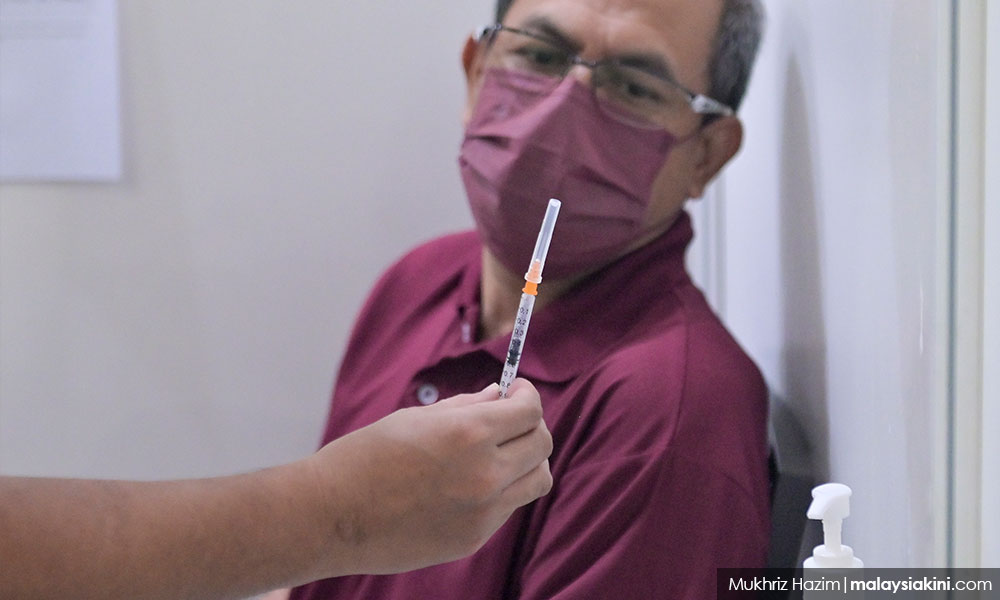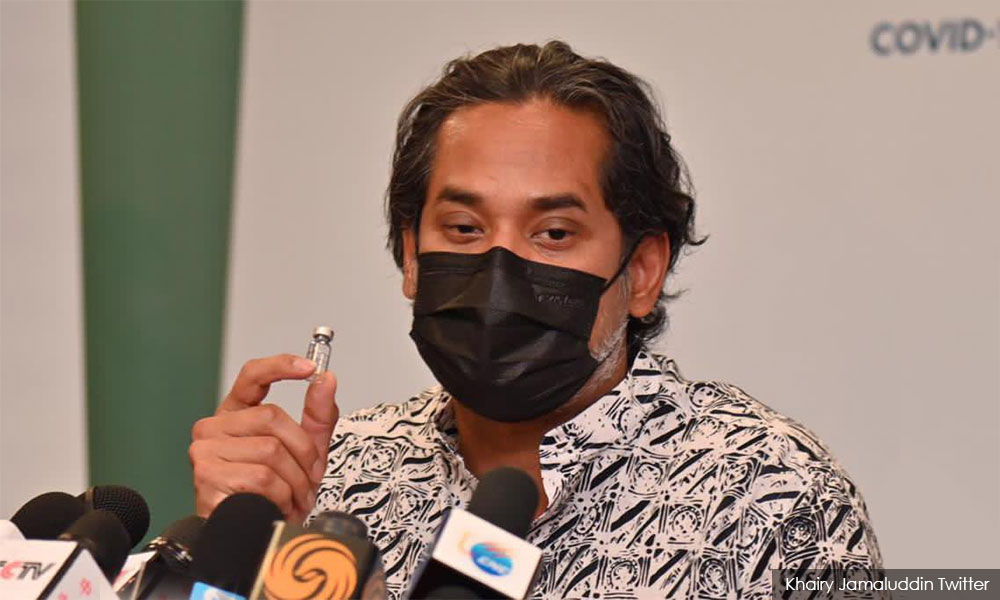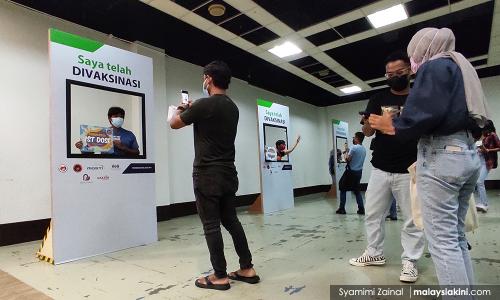COMMENT | No to 'Covid-19 vaccine apartheid'
COMMENT | Rich countries have booked many more doses of Covid-19 vaccines than they need for their population – five times more in the case of Canada, two times more for the US, 3.6 times more for the UK and 2.7 times more for the European Union. Meanwhile, the 85 poorest countries in the world have hardly any access to Covid-19 vaccines.
The World Health Organisation (WHO) has launched the Covax initiative targeting the delivery of 2 billion doses of the vaccine in the course of the year. But Covax has yet to receive a significant portion of the contributions pledged by the richer countries and has managed to distribute only 70 million doses of the Covid-19 vaccines as of May 27 (3.5 percent of the targeted amount).
Health and human rights activists have criticised this imbalance in access to the vaccine, terming it “vaccine apartheid”.
This massive imbalance in the allocation of a scarce resource is due entirely to money. The richest countries in the world contributed millions of dollars to different pharmaceutical companies working on Covid-19 vaccines with the understanding (crystallised in the form of binding contracts) that these countries would get the first option to procure “x” million doses of that vaccine if it came to the market.
Middle-income countries like Malaysia did not enter into such forward contracts because of the financial risk involved – if the vaccine wasn’t efficacious or if it had too many side effects, the money invested had to be written off. That was part of the deal.
So middle-income countries like Malaysia opted to wait to see if the vaccines were suitable for nationwide use before placing orders. So we are in the second tier of buyers, competing for a limited resource with the other middle-income countries that followed a similar strategy.
This is why PSM is firmly against the fragmentation of the Covid-19 vaccination programme in the nation that is being advocated by several political leaders. If we allow richer states to acquire the vaccine on their own, what about the poorer states in the federation? Are the lives of the people of poorer states less valuable than those of the residents of Selangor, Penang and Sarawak?
And if we allow the large factories to procure vaccines for their staff what about those in small and medium enterprises (SMEs), the daily paid workers and the smallholders? Is their protection not as high a priority?

Isn’t this similar to the vaccine apartheid we are critical about when it is practised by the rich countries? PSM's stand has always been that we need to tackle this pandemic on the basis of solidarity. Kita jaga kita! (We take care of each other)
If the fragmentation of the vaccination programme is allowed, this will lead to an escalation of vaccine prices as different states and other parties will offer higher bids in order to procure the scarce resource (and perhaps score some political points).
I remember New York Governor Andrew Cuomo complaining bitterly (in his televised chats with the public) about how the prices of personal protective equipment and ventilators had skyrocketed because of the fragmented nature of procurement in the US then.
The PSM is all for the involvement of private hospitals and general practitioners (GPs) in the roll-out of the national vaccination programme, but it must be a unified national programme coordinated by the Health Ministry, premised on need (vulnerability to infection) and not the capacity to pay. There can be no compromise on this principle. The Covid-19 vaccine should be given free to people based on their risk profile.
To facilitate a whole-of-society cooperation in the battle against Covid-19, it would be helpful if the government could clear the air about certain outstanding issues regarding vaccine procurement that tend to undermine the government’s credibility.
One of these issues was brought up by Pasir Salak MP Tajuddin Abdul Rahman in Parliament. He interrupted the finance minister to ask who will be getting the RM500 million commission for the purchase of the Covid-19 vaccines. There was a video circulating purportedly showing the minister bemused and at a loss of how to respond to this “friendly fire”.
As there are still quite a number of Malaysians who are suspicious that there is hanky-panky in vaccine procurement, the government should clear the air. We understand from the minister in charge of the vaccine programme Khairy Jamaluddin’s statements that the major pharmaceutical companies insisted on non-disclosure clauses in the contract agreements and given the tight supply situation, countries like Malaysia were not in a strong position to refuse.

But there is nothing stopping the government from setting up a committee of eminent individuals to act as an oversight body for the purchase of the Covid-19 vaccines.
This committee, which has to be sworn to secrecy, could comprise a couple of MPs from the opposition, a former Bar Council president, a Human Rights Commission (Suhakam) commissioner and a retired judge and they should be given the mandate to ask for and review all the necessary documents.
They should also be supplied a dedicated secretariat. This would allow an effective check-and-balance process while keeping to the terms of the government’s agreement with big pharma.
The other issue that this oversight committee should review is the allegation that Pharmaniaga mishandled a big batch of Sinovac vaccine material resulting in losses amounting to tens of millions of ringgit. This is a serious allegation and should be looked into by this committee.
Pharmaniaga “inherited” the staff and the technical capacity of the government Medical Store, the procurement arm of the Health Ministry before that function was privatised as Remedi Pharmaceuticals in 1993.
Remedi later morphed into Pharmaniaga which for the past 20 years routinely bottles vaccines that are used by the ministry, so they should have considerable expertise in doing this.
But it is possible that Pharmaniaga fumbled on this assignment with Sinovac. The oversight committee should look into this issue.
Obviously, the oversight committee has to honour the non-disclosure terms of Malaysia’s contracts with the pharmaceutical companies. But that should not be a barrier to giving a summary of its findings to the public. If serious malpractices are uncovered by the committee, then those should be forwarded to the Attorney-General's Chambers for appropriate action.
One other initiative that the government should take to address the legitimate questions and anxieties of the population with regard to vaccines would be to organise a series of virtual town hall sessions.
It can focus on topics such as how the National Pharmaceutical Regulatory Agency (NPRA) decides which vaccines are suitable for Malaysia, the difficulties that middle-income countries like ours face in bidding for these vaccines, steps being taken to rope in the private sector in the delivery of the vaccines to the public, the strategy of the government to allay vaccine hesitancy, and other similar issues involving the vaccination effort.
We have a smart and articulate minister in charge of vaccine procurement – he would be able to handle these town halls. Answers to the questions asked by participants could be put up on a website so that more people get to understand the process better.
We are in a difficult situation. Lives are being lost and livelihoods destroyed. We are at war with the virus and right now we are on the receiving end! We need a whole-of-society approach to get through this challenging period.
The government needs to do its part to clear doubts swirling around. At the same time, people need to be more vigilant to separate fact from fiction. Let’s work together to get everyone safely through this crisis.
JEYAKUMAR DEVARAJ is PSM chairperson and former Sungai Siput MP.
The views expressed here are those of the author/contributor and do not necessarily represent the views of Malaysiakini.
RM12.50 / month
- Unlimited access to award-winning journalism
- Comment and share your opinions on all our articles
- Gift interesting stories to your friends
- Tax deductable
